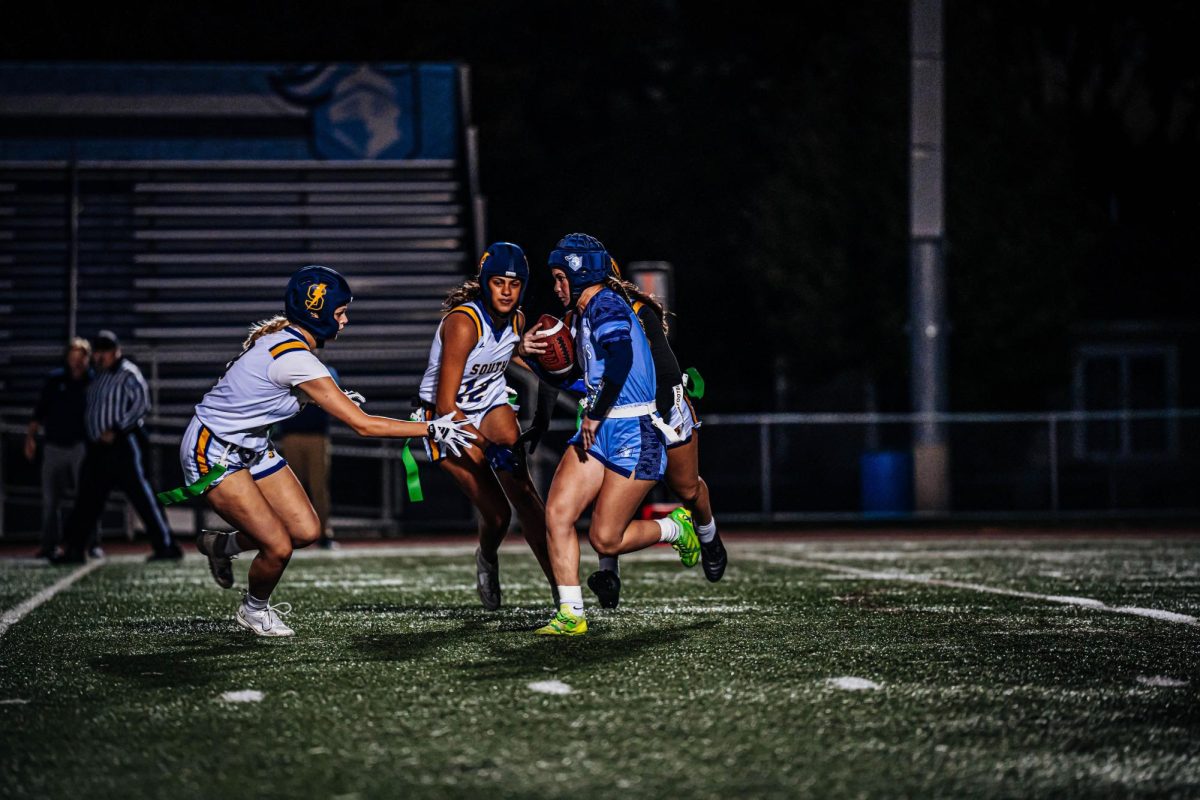The mesmerizing patterns of waves ripple through the pool as swimmers glide up and down the lanes. Each member of the swim team focuses on their set, pushing through their practice. Among his teammates is senior Ryan Eidelman,Varsity Boys’ swimmer, focusing on his technique, breathing, and giving it his all with just one thing that sets him apart: he is swimming without his right hand, having been born with congenital constriction band syndrome. Nevertheless, he never let his disability stop him from being a hardworking and successful swimmer.
Since he was 8-years-old, Eidelman has been competitively swimming and has carried his career through all four years of high school. Despite being an athlete with a disability, throughout his swimming career Eidelman has participated in the routine practices with his swim team with only some minimal adjustments to his arm movement, Eidelman said.
“I’m usually with the group in practices, some sets will differ for me, but for the most part it is the same,” Eidelman said. “For meets I also just swim with everyone else so [there are] no changes there.”
Practicing with the team without many adaptations is demonstrative of Eidelman’s strength and aptitude, David Lieberman, Junior Varsity Swim Coach, who coached Eidelman his sophomore and junior year, said.
“I treat him just like I treat all the other swimmers,” Lieberman said. “The fact that he’s talented also helps because he can [execute] the workouts that I’m giving to my group just like everybody else.”
At the sectional and state levels there are specific groups for athletes with disabilities, which he has swam in every year, Eidelman said.
“Freshman year I placed second in all events at state, and in the next two years I placed first in all events,” Eidelman said.
Outside of swimming for South, Eidelman has also had other accomplishments. As an international swimmer, just this last year he attended the paralympic trials in Minnesota and also represented the United States two years ago in Portugal with the Move United swim organization, Eidelman’s mom, Kulieva Medina, said.
“I’m very proud of him,” Medina said. “He has [faced] so many challenges, physically and mentally. He and other kids with disabilities [go] through tremendous challenges. They have to find ways to be resilient.”
Over the years swimming has been a way for Eidelman to enjoy sports and has become a part of him, Eidelman said. “Swimming has made me feel like I belong because it’s been one of the ways for me to [participate] in a sport,” Eidelman said. “It’s made me into who I am today.”












